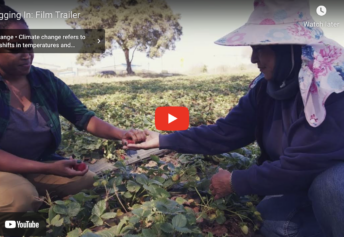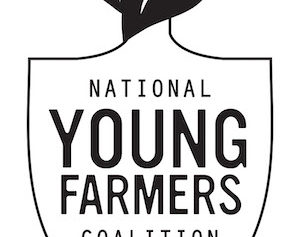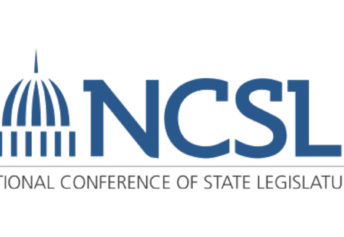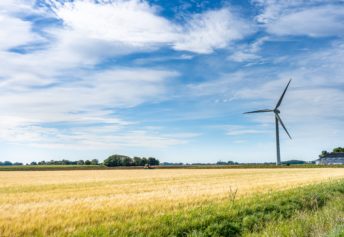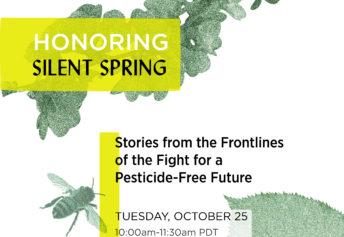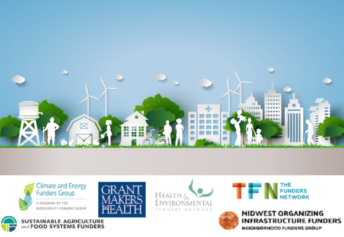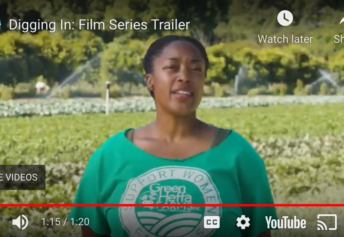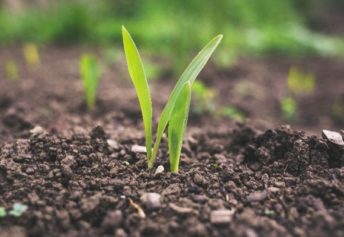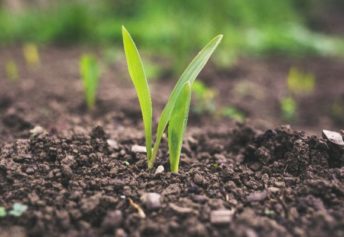Check out the trailer and get set for the premiere screening of SAFSF’s documentary “Digging In” on June 11 in Washington, D.C. The film explores the interconnected issues of concentration […]
FOCUS AREA: CLIMATE CHANGE
SAFSF uses focus areas to frame our policy, education, networking, and collaboration activities and offer multiple points of intersection for funders across our network.
The Issue
According to the Fourth National Climate Assessment, a federal inter-agency report published by the U.S. Global Change Research Program in 2018:
Rising temperatures, extreme heat, drought, wildfire on rangelands, and heavy downpours are expected to increasingly disrupt agricultural productivity in the United States. Expected increases in challenges to livestock health, declines in crop yields and quality, and changes in extreme events in the United States and abroad threaten rural livelihoods, sustainable food security, and price stability.
The report’s predictions refer primarily to commodity crop and industrial livestock production. It does note that Indigenous knowledge offers important insights and interventions that can inform climate resiliency plans, at the same time that livelihoods of rural communities and Indigenous and Tribal communities face unique and heightened risks from the effects of climate change.
The Connection of Climate to Agriculture, Food, and Fibers
The U.S. Environmental Protection Agency (EPA) reports that agriculture was responsible for about 11% of greenhouse gas emissions in the U.S. in 2021. Estimates that also include factors like fertilizer production, land use, and food waste put agriculture’s share of emissions even higher, at 20-25%. The longer conventional and extractive agriculture production methods dominate, and the longer policies that subsidize them remain in place, the higher this share could climb. Consider this animation from the Environmental Working Group showing current and expected U.S. emissions by economic sector. Emissions reductions in the transportation or residential sectors, without reductions from agriculture, food, and fiber systems, will not stave off the worse impacts of the climate crisis.
Expanding regenerative agriculture practices that originated in BIPOC communities, such as those that prioritize diversified agroecological systems, soil health, livestock grazing at non-industrial scales, etc., present a path forward for sequestering more carbon. Reducing fertilizer usage and curbing food waste are also key strategies to address major sources of agriculture emissions.
Climate and environmental funders should consider the current moment a call to action to harness the power of sustainable agriculture, food, and fiber systems as critical climate mitigation and adaptation strategies. Funding farmers, organizations, researchers, and grassroots advocates on the ground working to advance climate-smart practices, helping these groups access unprecedented federal conservation resources, and advocating for policy change in this sector is essential to ensuring a livable and equitable future.
Role of Philanthropy
Philanthropy has a key role to play in combatting climate change. Funders can support soil health and regeneration programs, diversified agroecological practices, and livestock grazing at non-industrial scales. These programs help create farms that are more resilient in the face of extreme weather events, and that contribute to the climate change solution by sequestering carbon and lowering methane and other harmful emissions. To connect with like-minded food and agriculture funders, become a SAFSF member.
More resources on Fiber-Agriculture-Climate Connections
-
- Textile Exchange Regenerative Agriculture Landscape Analysis: This 2022 report makes the case for the connections between climate and agriculture for the fiber and textile industry, with a strong emphasis on the indigenous roots of regenerative agriculture and the need for equitable financing approaches to share the cost and risk of the transition to regenerative ag. View Textile Exchange’s Climate Vision.
-
- Fibershed’s Climate BeneficialTM certification and related research: Fibershed’s program supports fiber farmers and ranchers in landscape-level stewardship that centers their work to build healthy soil.
SAFSF Featured Content
Dig Deeper
These resources are provided for information only; listing here does not imply an endorsement of any organization or its views by SAFSF.
- Climate Philanthropy Guide
- Climateworks Foundation
- Funding Climate Action: Pathways for Philanthropy
- Climate Change and Philanthropy: A Topic Brief for Donors
- Rural Climate Partnership
- Climate Change Impacts On Agriculture and Food Supply
- Tribal Climate and Conservation
- Federal Strategy to Advance Greenhouse Gas Emissions Measurement and Monitoring for the Agriculture and Forest Sectors
- US Agriculture and the Net Zero Challenge
- USDA Climate Solutions
- USDA Climate Hubs
Also see the multi-sector Funder Toolkit on Climate, Health and Equity, a project of eight philanthropy serving organizations including SAFSF.
Below is a listing of SAFSF programs and resources related to climate change.
Farm Bill Platforms from the Field – National Young Farmers Coalition
Join us to hear from the National Young Farmers Coalition (NYFC) about their 2023 Farm Bill Platform. Vanessa García Polanco, NYFC Policy Campaigns Co-Director will walk us through the coalition’s policy […]
Found in:
WebinarsState Policy in Focus: 2023 Legislative Landscape with NCSL
From bolstering local food systems, regulating agricultural chemicals, to expanding farmers’ access to land, state legislatures have a significant role in incorporating sustainability and equity into the laws and policies […]
Found in:
WebinarsWhy Farm Bill and Agriculture Policy Matter for Climate
Please join Climate and Energy Funders Group (CEFG) and Sustainable Agriculture and Food Systems Funders (SAFSF) for a webinar focused on the opportunities and threats for addressing climate change through […]
Found in:
WebinarsHonoring Silent Spring: Stories from the Frontlines of the Fight for a Pesticide-Free Future
Sixty years ago, Rachel Carson released her seminal book, Silent Spring, whose publication gave birth to the EPA, Clean Water Act, Clean Air Act, and sparked the ban on the […]
Found in:
WebinarsResourcing Midwest Health Sector Work on Climate Change and Health Equity
Sustainable Agriculture and Food Systems Funders, Grantmakers in Health, Climate and Energy Funders Group, Health and Environmental Funders Network, The Funders Network, and Midwest Organizing Infrastructure Funders invite interested nonprofit, […]
Found in:
WebinarsLeveraging Federal Funding for Climate Justice in Midwestern Frontline Communities
Sustainable Agriculture and Food Systems Funders, Grantmakers in Health, Climate and Energy Funders Group, Health and Environmental Funders Network, The Funders Network, and Midwest Organizing Infrastructure Funders invite interested nonprofit, […]
Found in:
Webinars“Digging In”: SAFSF Film Series Trailer
One Forum moment was unlike any other from past convenings: the debut of the trailer for the upcoming SAFSF short film series “Digging In” which will explore the issues of […]
Action for a Small Planet | Part 2
An interactive conversation about innovative funding for systems change Join your fellow grantmakers in a discussion with Anna Lappé, founder of the Food Sovereignty Fund at the Panta Rhea Foundation […]
Found in:
WebinarsLessons for a Small Planet | Part 1
An intimate mother-daughter conversation with Frances Moore Lappé and Anna Lappé The Global Conservation Program at Biodiversity Funders Group (BFG) and the Panta Rhea Foundation would like to invite you to join us for […]
